Naik Bakht must anchor his boat in the open sea across Juddy Hoor if he wants a chance at catching the fish. On regular days, he risks his boat; in the increasingly unpredictable monsoon spells, he risks his life too. A resident of the coastal town of Pasni in Pakistan’s Balochistan, Bakht is among the countless fishermen affected by the non-functional Pasni Fish Harbour, fraught with mismanagement and corruption.
Once a hub of fishing activities with more than 3,500 boats sailing off Pasni's tiny coastal shore, the poor, dusty town's economy remains weak and faces severe risks of further decline. Incomes have dropped sharply, unemployment is rampant, and boats stand idle on the shores. Pasni's GDP has fallen more than expected, and fishing businesses are operating well below capacity. Thousands of fishermen have become jobless as the once-thriving harbor is now filled with sand and mud and has been closed since 2003.
In 1989, Balochistan established its first fish harbour in Pasni with the aim of promoting fishing activities. Initially, the harbour boasted a depth of 20 feet, equipped with two channels designed to facilitate the entry and exit of boats, thereby aiding fishermen in their operations.
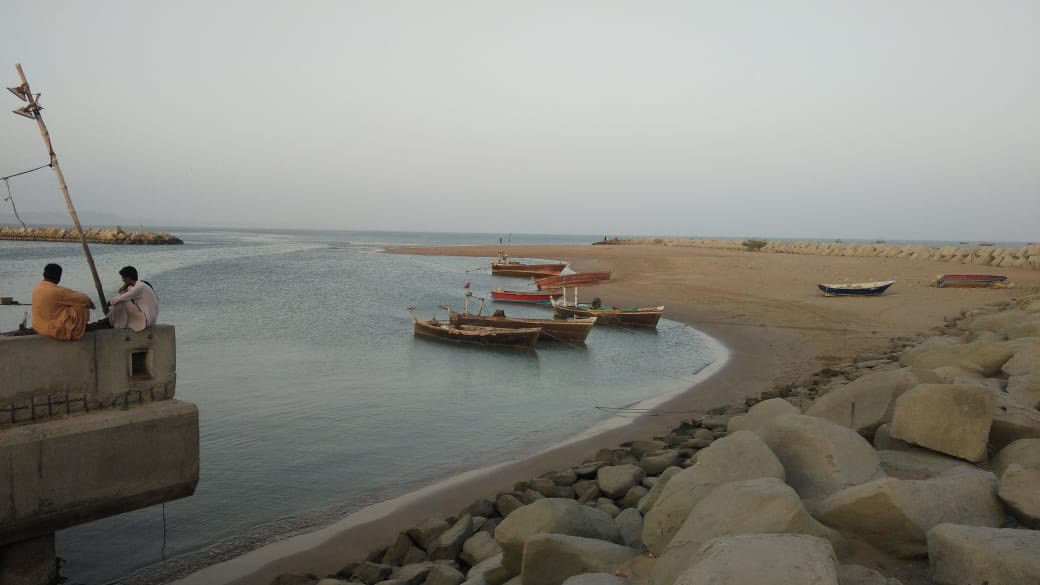
The harbour was constructed in 1989 during the tenure of Ziaul Haq, with funding provided by the Asian Development Bank. It was designed to have an approach channel, harbour basin, and berthing area. However, the construction company indicated the need for regular dredging and maintenance, particularly considering the impact of monsoon seasons and sand erosion. They suggested that the harbour required attention every five years to keep it functional. Unfortunately, due to a lack of regular dredging, the harbour has gradually silted up over time, making it unusable. Currently, the water depth is not sufficient for berthing boats, as it has significantly reduced due to silting.
According to background interviews, Pasni used to be the economic centre of the Makran division and served as a small free port for the loading and unloading of goods from Dubai and the Gulf states. At present, Pasni officially registers around 3,500 boats, and this number may increase with the inclusion of unregistered boats. Typically, each boat carries six to seven fishermen, while larger boats, known as 'Laanch' can accommodate more than ten people. The estimated annual catch is 37,600 tons. However, the catch rate is significantly lower due to the harbour’s dysfunctionality and boats getting stranded.
The fishermen of Pasni reminisce about the time when the fish harbour was operational and how it contributed to the economy of the entire town, which solely depends on fishing. The fish harbour used to be a bustling place with fishermen from different areas coming in. Both the companies and the shops around the fish harbour were thriving due to the influx of people and the abundance of fish. Aslam Baloch, who owns a shop near the fish harbour selling fishing materials, commented, "Now hardly anyone comes." He further explained “Even the fishermen face difficulties and have to load and unload their catches in Gwadar or Karachi since the water across Juddy Hoor is not reliable enough for big boats”.
1718495103-0/6a135a5c-bed0-4758-80ec-17e2febde120-(1)1718495103-0.jpeg)
“Due to the closure of Pasni Fish Harbour, around 300,000 kilograms, worth approximately 12.5 million rupees, are wasted every day,” said Aziz Peer Baksh, owner of Atlantic Seafood Company in Pasni. “Fishing companies are struggling to even freeze 40% of the fresh catch, rendering 60% of it useless,” he said.
Out of the thirteen, three fishing companies in Pasni have closed down, he added. “These operational companies freeze about 15 tons of fresh fish daily. Every two days, each company ships one container of 26 metric tons of frozen fish to Karachi, from where it is exported to foreign countries.”
“On a daily basis, five lakh kilograms of various types of fish are caught from the sea in Pasni, with a monthly average purchase of over 650 million rupees,”explained Baksh.“If the Fish Harbor jetty is fully restored, all fish companies in Pasni could export fresh fish worth 6.5 billion rupees from August to May,” he said.
Kaoda Ali, an activist in Pasni, explained that the jetty allowed fishermen to improve the quality and value of the catch. "The jetty empowered locals in the freezing plant business, leading to improved employment opportunities and higher fish prices."
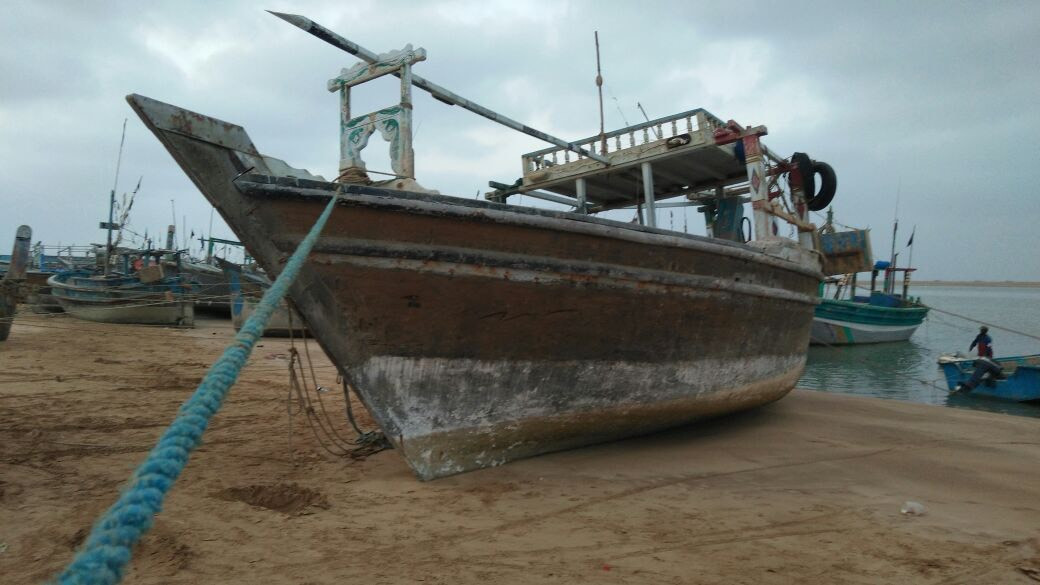
“The transformation and stability witnessed in Pasni were primarily attributed to the companies that enhanced the fisheries sector. Additionally, between 1990 and 1996, large cargoes from Dubai and the Middle East used to arrive in Pasni, further boosting the local economy. Although cargo shipping ceased after 1996, the fishing sector continued to thrive, sustaining the city's economy, he further mentioned,” said Ali.
“After completing the work, Bell Finger Company emphasised the importance of proper silting at the Pasni Fish Harbor. Unfortunately, from 2000 to 2010, no silting operations were carried out due to financial crises and failures within the provisional government and ministry,”he said.“ Despite receiving funding from the Japanese government, instead of investing in a dredging machine, the administration opted to deposit the funds in fixed deposits to pay workers' salaries. This decision, coupled with rampant corruption, led to the draining of the harbor,”explained Ali.
1718495103-1/801e9a3e-0c31-4ef4-9d44-3f0b15452fe6-(1)1718495103-1.jpeg)
“Engineers suggested the construction of a breakwater to mitigate the situation, but lack of funds and corruption hindered its implementation. With the jetty now dysfunctional, cargo ships no longer dock at the harbor, resulting in a decline in economic circumstances for Pasni fishermen. Pasni's economy is heavily reliant on the sea, and any downturn in maritime business directly impacts the local economy,”Ali Added.
When the Pasni Fish Harbour Jetty was completed and became operational, one of the fundamental issues with the jetty was its location. The surveyor proposed a site for the jetty between Juddy and Zarrain, which has posed ongoing challenges.
A research paper published in the Journal of ResearchGate in November 2012, titled "The Issue of Coastal Erosion and Accretion along Makran Coast of Pakistan.” “Any man-made structural development along the Makran coast triggers swift responses in terms of accretion and erosion,” said the report.
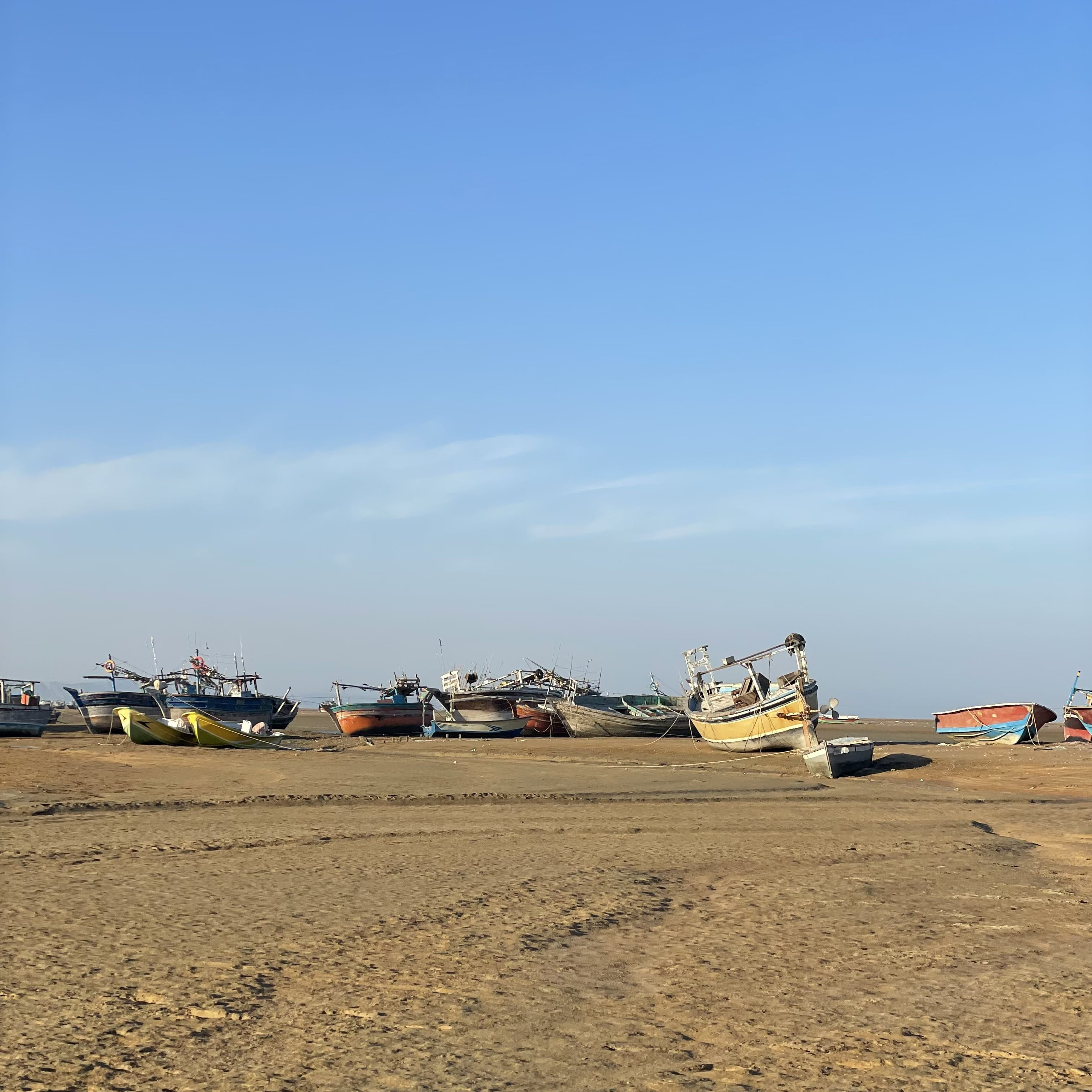
Furthermore, the paper noted that,“ in such bays, where sediment transport is nearly balanced, even a minor disturbance can significantly alter the area's physiography and hydrodynamics. This phenomenon precisely describes the dysfunctionality experienced at Pasni Fish Harbour, where the delicate balance between erosion and accretion was disrupted, leading to the non functionality of the fish harbour,” explained the report.
In May 2023, the Institute of Policy Studies Islamabad published a policy report on harbor authority. The central channel of the Pasni Jetty was closed in 2010, rendering the Pasni Fish Harbor Authority inactive. “The closure of the Pasni Jetty has had a significant impact on the local fishing industry. Efforts to revive the jetty between 2014 to 2016 were unsuccessful due to a lack of qualified engineers and management capabilities within the Pasni Fish Harbor Authority," the report said.
Approximately 3.9 billion rupees are required for the revival of the jetty. "The delay in addressing these issues affects the livelihoods of 13,500 people…Collaboration between federal and provincial governments is necessary to maximise the benefits of this project,” explained the report.
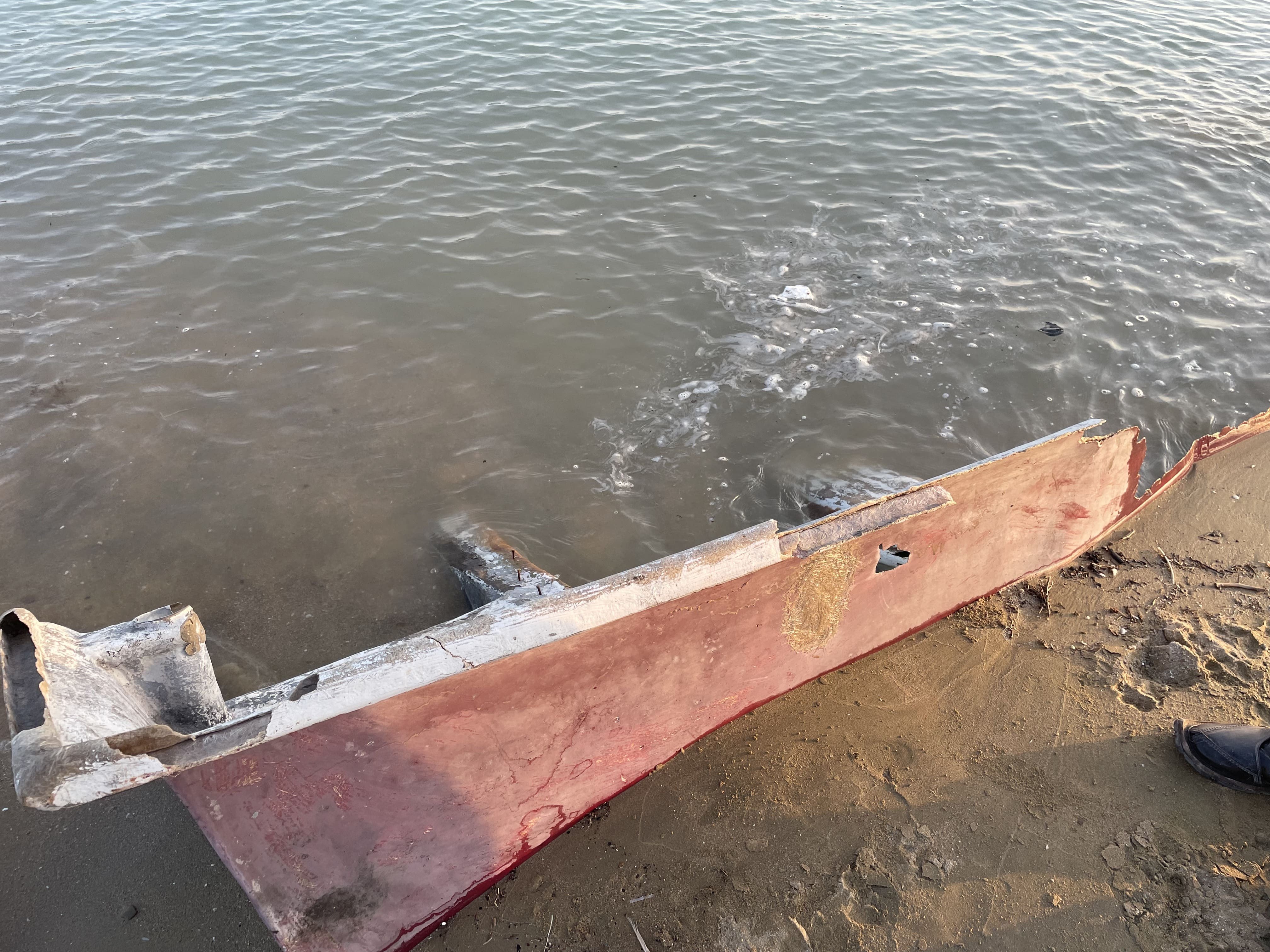
In August 2020, the Central Development Working Party, a part of the planning and development department, deliberated on restoring the authority. They allocated an initial fund of 145.98 million rupees. Later, on November 14, 2020, the former Chief Minister of Balochistan, Mir Jam Kamal Khan, initiated its revival.
Former National Assembly member Muhammad Aslam Bhootani, who represented the same constituency, was said to have put in effort towards the project’s revival. In October 2021, members of a parliamentary committee for the China-Pakistan Economic Corridor visited the Pasni Fish Harbor Authority and held discussions with fishermen.
Despite these efforts, the Ministry of Maritime Affairs and the Secretary Planning deemed the revival unsuccessful. This decision was attributed to the substantial funds required for the project and its perceived lack of profitability.
The project also fell victim to corruption. The Japanese government allocated a special grant of 80 million rupees during Chief Minister Nawab Aslam Khan Raisani's tenure for the revival of jetty and the subsequent revitalisation of economic activities in the area. Project directors and other implicated individuals stand accused of colluding to carry out corruption worth billions of rupees. Despite 20 years passing since its initiation in 1989, and closure in 2003, , the Pasni Fish Harbor since then have never been revived.
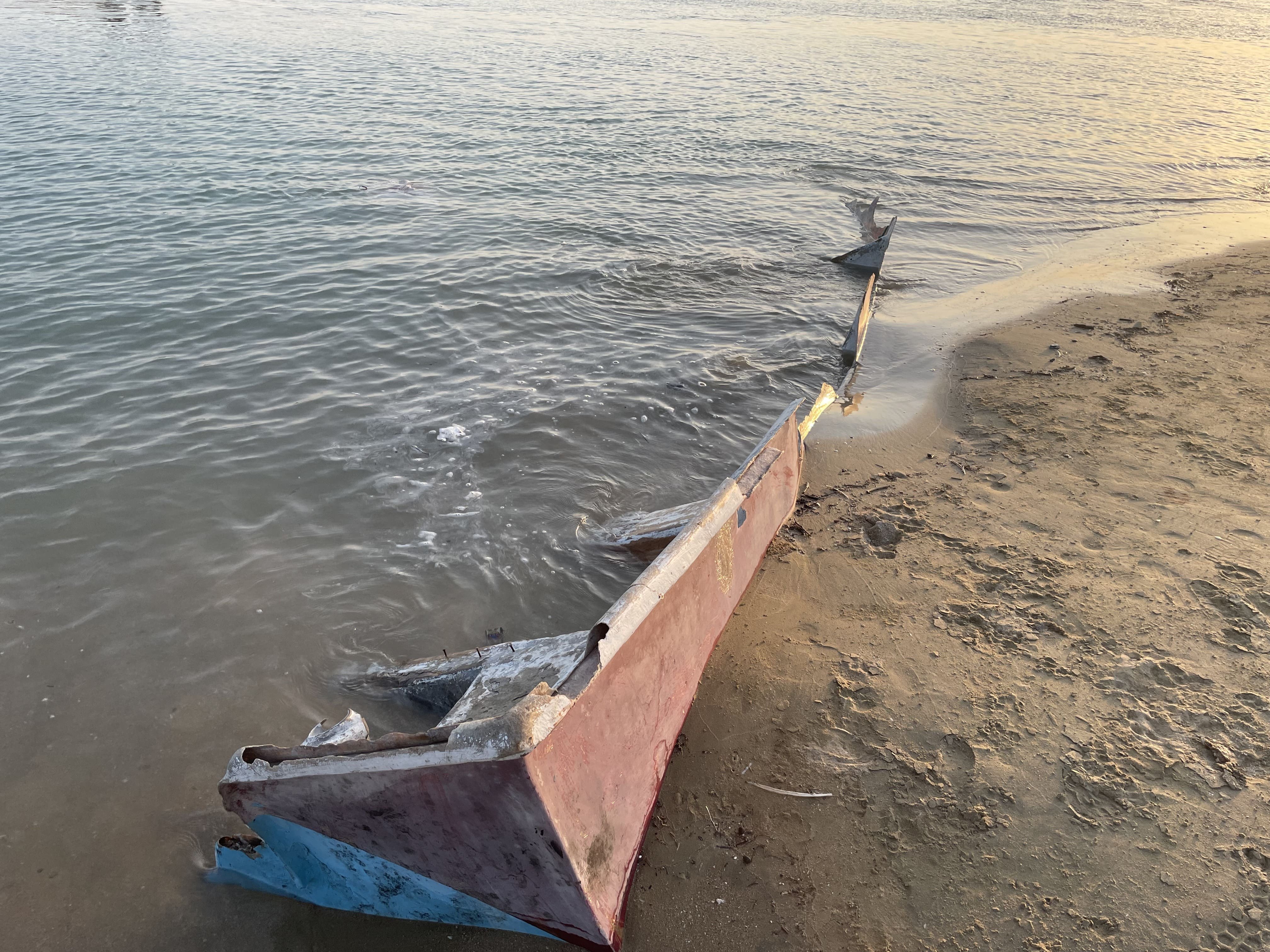
The fishermen have staged multiple protests, but government officials pay no heed.
"I have seen numerous political figures during their electoral campaigns, promising us the revival of the harbor," lamented Nako Dosti, a 75-year-old fish warehouse owner near the harbor. “Once they win the seat, the forget their promises.”
Assistant Director of Marine Fisheries, Abdul Razzaq Baloch, however, thinks that harbor an important project for the country’s economy. The Fisheries Department of Balochistan has said that Pasni has around 3,500 registered boats, including 600 speedboats used for small-scale fishing. In 2023 alone, the government collected over one billion rupees from boat license renewals.
“Our only fish harbour is dysfunctional for two decades, yet we see other new projects and investments propping up,” said Naik Bakht.
Climate change has worsened the situation. Fishermen say over a hundred boats have been damaged, with some being swept away into the sea by the rainwater.
“The Pasni Fish Harbor is integral to the livelihoods of over 6,000 local fishermen. Additionally, it hosts 10 fish companies with over 1,500 laborers, and small warehouses nearby employ hundreds involved in fish loading. Its revival holds the promise of rejuvenating Pasni's economy, currently in decline,” Sajid Noor, a Pasni-based journalist.
